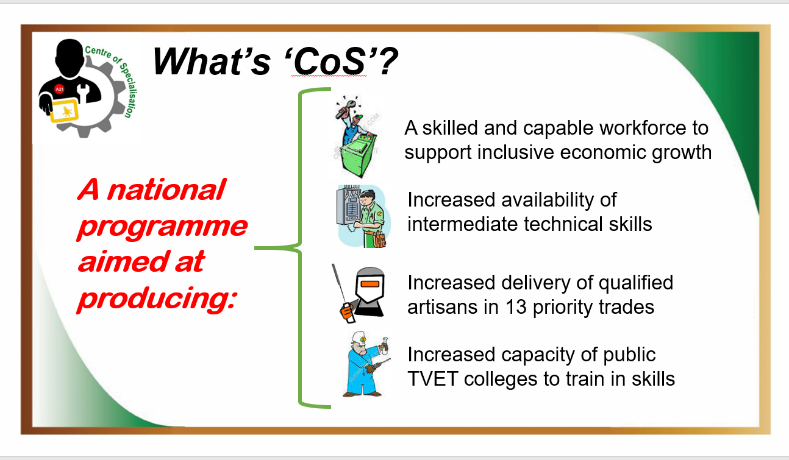
How TVET Colleges Address the Need for Specialised Skills Training in South Africa
Introduction
South Africa faces a significant skills shortage, particularly in specialised fields. To address this challenge, Technical and Vocational Education and Training (TVET) colleges play a crucial role in providing specialised skills training to meet the demands of the labour market. This essay explores how TVET colleges in South Africa are addressing the need for specialised skills training, examining their strategies, challenges, and the impact of their efforts.
Strategies for Specialised Skills Training
TVET colleges employ various strategies to deliver specialised skills training:
-
Curriculum Development: Colleges collaborate with industry experts and employers to develop curricula that align with current industry requirements. They incorporate hands-on training, practical assessments, and industry-specific certifications.
-
Partnerships with Industry: TVET colleges establish partnerships with businesses and industry organisations to provide students with practical experience, internships, and access to state-of-the-art equipment.
-
Specialised Training Centres: Colleges invest in specialised training centres equipped with industry-grade machinery and technology, allowing students to gain practical skills in specific fields such as automotive, electrical, and construction.
-
Apprenticeship Programmes: Colleges offer apprenticeship programmes that combine classroom instruction with on-the-job training, providing students with a comprehensive learning experience.
-
Skills Development Fund: The South African government provides funding through the Skills Development Fund to support specialised skills training initiatives in TVET colleges.
Challenges Faced by TVET Colleges
Despite their efforts, TVET colleges face several challenges in delivering specialised skills training:
-
Limited Resources: Colleges often have limited funding and resources, which can hinder their ability to acquire specialised equipment and hire qualified instructors.
-
Outdated Infrastructure: Some colleges lack modern infrastructure and equipment, making it difficult to provide students with hands-on training in emerging technologies.
-
Instructor Capacity: The availability of qualified instructors with industry experience is a challenge, especially in specialised fields.
-
Employer Engagement: Engaging with employers to develop relevant curricula and provide practical training opportunities can be challenging.
-
Student Motivation: Motivating students to pursue specialised skills training in fields that may not be traditionally seen as desirable can be difficult.
Impact of Specialised Skills Training
The specialised skills training provided by TVET colleges has a significant impact on the South African economy and workforce:
-
Increased Employability: Graduates with specialised skills are highly sought after by employers, increasing their chances of securing employment.
-
Enhanced Productivity: Specialised skills training improves the productivity of the workforce, leading to increased economic growth.
-
Innovation and Competitiveness: By providing specialised skills training, TVET colleges contribute to the development of a skilled workforce that can drive innovation and enhance South Africa’s competitiveness in the global market.
-
Reduced Skills Shortages: Specialised skills training helps to address the skills shortage in critical sectors, ensuring that businesses have access to the skilled workforce they need.
-
Social and Economic Development: By providing specialised skills training, TVET colleges contribute to social and economic development by empowering individuals and creating opportunities for employment.
Conclusion
TVET colleges in South Africa play a vital role in addressing the need for specialised skills training. Through strategic partnerships, curriculum development, and specialised training centres, they provide students with the skills and knowledge required to succeed in the modern labour market. Despite challenges, TVET colleges continue to adapt and innovate to meet the evolving demands of industry. The specialised skills training provided by these institutions has a significant impact on the economy, workforce, and overall development of South Africa. By investing in TVET colleges, the government and stakeholders can empower individuals, drive economic growth, and ensure a skilled and competitive workforce for the future.